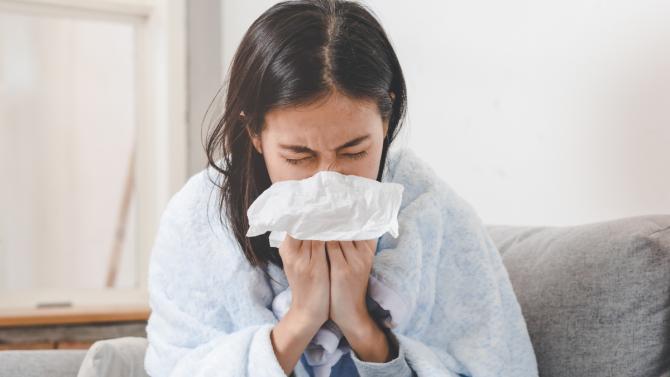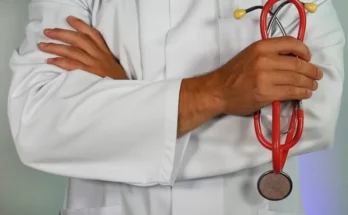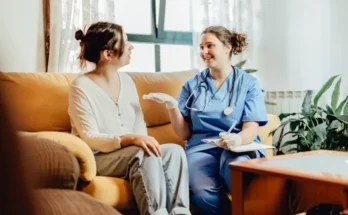New infection numbers every day, virus variants again and again and no end in sight – many consumers ask themselves: How can I continue to protect myself from the corona virus? Should I get tested? Find answers to these questions in this article.
The essentials in brief:
- Since November 13, 2021 you are entitled to one free citizen test per week.
- Under certain circumstances, you should contact your family doctor and have them tested: if you have typical symptoms of corona, if you have had contact with corona patients or if you work in a healthcare profession. Or after certain trips.
- There are now several drugs on the market to treat COVID-19 patients.
How do I protect myself from infection?
According to current knowledge, SARS-CoV-2 is transmitted through direct contact via speaking, coughing or sneezing. Aerosols (the finest airborne particles) also play a role. So protect it best
- cough and sneeze etiquette,
- hand hygiene,
- Mouth and nose cover and
- a distance of one to two meters from persons suspected of being ill.
Incidentally, these measures always make sense: They also protect against infection with other pathogens, especially during cold and flu seasons.
Many consumers were concerned because hand sanitizers were becoming scarce in both pharmacies and drugstores. But: Washing hands is also a very effective and simple method to protect yourself and others from infections. However, many people wash their hands too little and thus do not effectively reduce the number of germs on the skin. Thorough hand washing should take 20 to 30 seconds and include five steps:
- Hold your hands under running water and choose the temperature that is comfortable for you.
- Thoroughly lather your hands: outer and inner surfaces, fingertips, thumbs and between the fingers and fingernails.
- Rub the soap in thoroughly for 20 to 30 seconds.
- Rinse hands under running water. In public toilets, it is best to turn off the tap with a disposable towel or your elbow.
- Dry your hands thoroughly, preferably with a disposable towel in public toilets.
- If you don’t have washing facilities, be careful not to touch your mouth, eyes or nose with your hands and avoid eating food with your hands.
Ordinary soap is sufficient. To date, there have been no studies showing any benefit from using soaps with antimicrobial additives. Even without soap, just washing with water reduces the number of pathogens.
Good to know: Information that dietary supplements protect against corona is wrong, by the way.
When can I take a citizen test?
Since November 13, 2021, you can have yourself tested once a week free of charge as part of the citizen test. This can be done in test centers and pharmacies. These are rapid antigen tests, not PCR tests. More information on the current test strategy can be found on this page.
When should I be tested for the coronavirus by PCR test?
The PCR test (also called laboratory test) is considered the most reliable corona test. Here, the genetic material of the pathogen is multiplied. This allows corona viruses to be detected even in small quantities.
In order to relieve the burden on the laboratories, in the future PCR tests should only be carried out in cases in which it can be assumed that the incidence will be positive.
Basically, the following now applies: A PCR test should only be preceded by a correctly performed, high-quality SARS-CoV-2 antigen test.
The amended Test Ordinance, which came into force on February 12, 2022, regulates the details. After that, the following will apply in future:
- The basic right to a PCR test remains. In the future, however, PCR tests will only be carried out after a positive rapid antigen test.
- When diagnosing and evaluating the PCR tests, preference is given to high-risk patients, people in vulnerable areas such as inpatient care, care at home, integration assistance and in medical areas (practices, hospitals, care, rescue services).
Important to know: Patients at risk and people in vulnerable areas also need a positive rapid antigen test before they can do the PCR test.
- The red warning message on the Corona-Warn-App is no longer sufficient to get a PCR test. A claim must first be clarified with an antigen test.
- The rapid antigen test is sufficient for free testing – the premature termination of isolation or quarantine.
- Children also continue to have access to PCR tests. In principle, laboratory-based PCR tests for pool tests remain possible for educational institutions such as schools or day-care centers, as does the use of antigen tests. A negative certified antigen test is also sufficient for children and young people if they want to end their isolation and quarantine early. Requirement: The facility follows a “test-to-stay” approach.
- The special needs of children must be examined on a case-by-case basis.
Who bears the costs for a PCR test?
Statutory health insurance/nursing care insurance covers the costs of the tests for the groups of people mentioned. This applies regardless of your insurance status, and therefore also for people without insurance cover. This is a non-insurance benefit for which the federal government provides a subsidy from tax funds.
If you contact your doctor as a privately insured person with symptoms and the test is prescribed by a doctor, this is an insured event under your private health insurance. You will receive an invoice that you can submit to your insurance company.
If the test is carried out or commissioned by the health department, the public health service (ÖGD) will bear the costs. They are paid from the health fund of the statutory health insurance companies.
Returnees from high incidence and virus variant areas (both those with statutory and private insurance) bear the costs of the tests themselves.
What to do if practices refuse PCR tests as a contract doctor service?
Consumers from different federal states have complained several times that, despite the clear legal situation, they have not found any doctors who bill the Association of Statutory Health Insurance Physicians for the PCR test in certain constellations specified in the Corona Test Ordinance. Most of the time it was about tests that are required before starting inpatient rehabilitation or before admission to the hospital – and which the practices only wanted to provide as a self-paying service.
Before inpatient rehabilitation or a stay in hospital, PCR tests are a service that the Association of Statutory Health Insurance Physicians must reimburse. The Federal Ministry of Health has confirmed the legal opinion of the consumer advice centres.
If you are awaiting hospitalization or rehab, however, stricter precautions apply due to the risk of bringing the virus into the facility from outside. This is also the national test strategy of the Robert Koch Institute.
The situation is different if you have already been admitted. You can be referred to the antigen quick test, so you don’t get a free PCR test.
What treatment options are available to me against the coronavirus?
Depending on the degree of severity, the treatment focuses on supporting measures. This includes the administration of oxygen, fluids and antibiotics for bacterial concomitant infections.
Several active substances and drugs have now been approved to treat COVID-19 diseases:
- remdesivir,
- the cortisone preparation dexamethasone,
- the monoclonal antibody drugs Ronapreve® and RoActemra®, and
- since January 2022 the drug Lagevrio®.
The antiviral drug Paxlovid® has also been available since February 25, 2022 and can be prescribed in the future. This is another preparation that can prevent serious illnesses and deaths in high-risk patients. The drug is intended to treat patients who
- have symptoms
- are not in the hospital
- do not have to be artificially ventilated,
- have an increased risk of severe disease progression.
Paxlovid® should be administered as early as possible and within the first five days after symptoms begin.
Corona self-test: are do-it-yourself tests suitable for at home?
With the amendment to the Medical Devices Release Ordinance, the Federal Institute for Drugs and Medical Devices has now approved rapid corona tests for private use for private individuals.
You can take the swabs yourself from the front nose. Deep penetration into the nasopharynx is not necessary. The test detects the virus protein in the secretion provided a sufficient amount of virus is present. If the result is positive, a second colored line will appear in the field of vision after around 15 minutes, similar to a pregnancy test.
The corona saliva tests, also known as “spit tests”, are antigen tests in which the saliva is tested for virus components. You spit into a saliva collector. Then apply the sample to a test cassette with a pipette or put it in a tube, depending on the manufacturer. After about 15 minutes you can read the test result.
Rapid tests only show an infection from a certain number of viruses. On the other hand, PCR tests (laboratory tests) are much more sensitive and reliable. You must have a positive self-test confirmed with a PCR test.
Important Note:
Because of the easy market access for manufacturers, many self-tests are commercially available that only provide unreliable results. The lists published by the Federal Institute for Drugs and Medical Devices (BfArM) are not very helpful in this regard, since the quality features there are based on the information provided by the manufacturer.
The Paul-Ehrlich-Institut (PEI) examined some of these rapid tests and published the results of the evaluation in this PDF file. Unfortunately, the list of results is difficult for consumers to understand. A barcode scanner offers better orientation. To do this, scan the barcode of the test you want to buy with your smartphone. After that, you will learn how reliable the test is.
What to do if the self-test is positive?
You must immediately have a positive self-test result confirmed by a PCR test. Please go into domestic isolation and contact a doctor, the health department or a test center in your federal state by telephone.
Is there an obligation to report a positive self-test?
No. However, you should have a positive self-test confirmed by a PCR test. In this case, please go into domestic isolation until the result is available. You must continue to follow the AHA+L rules. On the other hand, positive results from rapid antigen tests carried out by trained personnel must be reported. They must be reported to the health department.
Is there a mandatory test in the workplace?
According to the SARS-CoV-2 Occupational Health and Safety Ordinance, which applies nationwide, employers are obliged to offer you a free test at least twice a week if you cannot be given equivalent protection by other suitable protective measures.
In some federal states, such as in North Rhine-Westphalia since July 1, 2021, there has also been a test obligation if you return to work or the office after an absence of several days, e.g., on vacation. Exception: You are fully vaccinated or have recovered. Then this obligation does not apply. Please note, however, that your employer can make other arrangements for other employee obligations, for example through company agreements.




